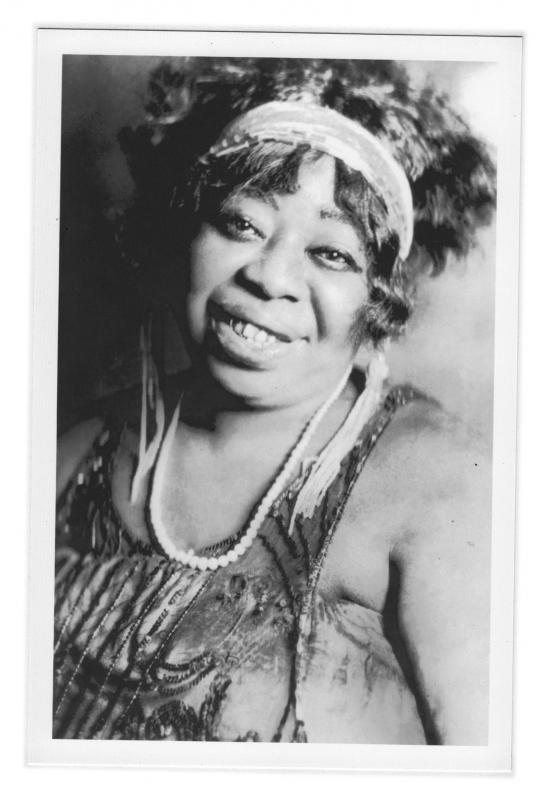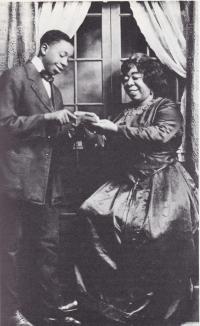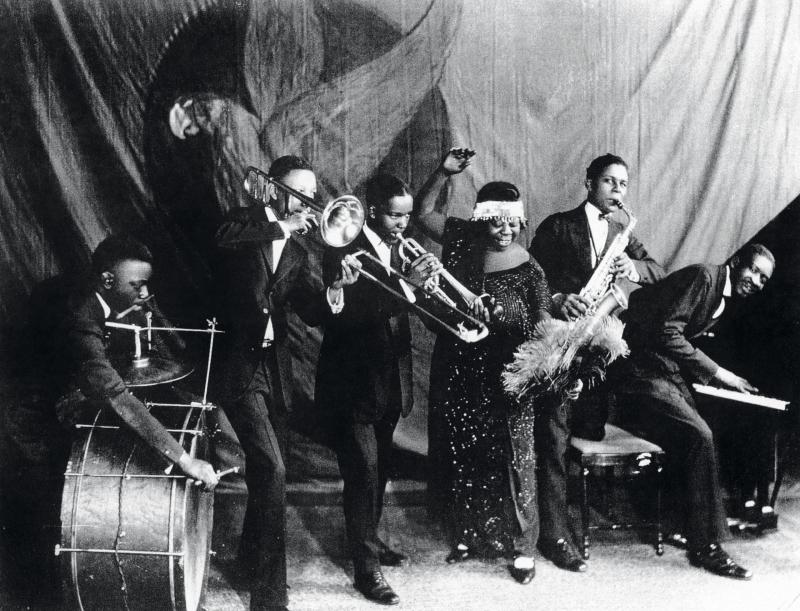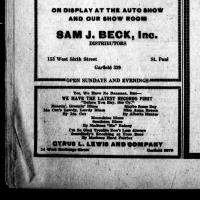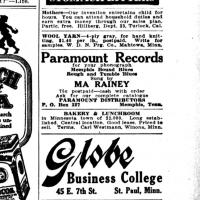Ma Rainey
PerformerMa Rainey, the "Mother of the Blues," was one of the original blues queens of the 1920s, along with women like Bessie Smith and Ida Cox. Early in her career, Rainey and her husband performed on the popular traveling circuits like the Rabbit Foot Minstrels. These circuits provided some control for black performers over their own representation, but also meant they were responsible for the business, promotion, and performance sides of their careers. Rainey also became one of the earliest stars in the Theater Owners' Booking Association, an incorporated group of theaters and booking agents that organized railroad tours for African American performers and brought variety shows to cities across America. Despite the opportunities for mobility and promotion this provided, it was also seen as decidedly low-class, a label that Rainey and other early blues queens repeatedly had to fight in both white and black communities.
While helping the recording industry popularize a new genre known as the blues, blues queens like Rainey also pushed back on gender, class, sexuality, and racial barriers through their performance styles, appearance, and the content of their songs. The extravagant, hyper-feminine appearance of Ma Rainey can be seen in her publicity materials. Highly feminine symbols--makeup, coiffed hairstyles, shimmering gowns accented with pearls and feathers--asserted Rainey's own claim to womanhood, a category that long excluded black women.
Her physical expression also pushed back against ideas about class and race. Despite the exploitation faced by black performers in the early recording industry, Rainey's affluent appearance proclaimed her own stake in its self-enriching power. Breaking dramatically from the representation of black women as "mammies" in minstrelsy and vaudeville, Rainey's performance asserted new claims to social respect, economic stability, and femininity for black women. All of these elements were artfully contrasted by the content of Rainey's songs. While dressed in elegant gowns and gloves, Rainey sung songs with highly working-class, or "down-home," themes. The juxtaposition of high and low culture in her performances spoke to black, working-class audiences who may have been living the lives described in the songs but dreamed of attaining the affluence that Rainey embodied.
Rainey's appearance, performance style, and lyrics were also explicitly sexual in a time when overt sexuality was taboo. She is known for a moaning style of signing, adding a sonic wink for record-buying audiences who did not have access to her live performance. Rainey also broke down barriers of sexuality as a bisexual woman despite her marriage to "Pa" Rainey. In 1925, Rainey was arrested for hosting an "indecent party" of naked women. Fellow blues queen Bessie Smith allegedly posted her bail. In another instance, Ma Rainey was featured wearing a man's suit in the advertisement for the song "Prove It On Me." In this way, she not only publicly asserted agency over her own social and economic position, but also over her gender and sexual identity. This song's lyrics also included decidedly bisexual themes: "Went out last night with a crowd of my friends. They must've been women, 'cause I don't like no men." These lyrics are thought to be a response to her 1925 arrest.
While helping the recording industry popularize a new genre known as the blues, blues queens like Rainey also pushed back on gender, class, sexuality, and racial barriers through their performance styles, appearance, and the content of their songs. The extravagant, hyper-feminine appearance of Ma Rainey can be seen in her publicity materials. Highly feminine symbols--makeup, coiffed hairstyles, shimmering gowns accented with pearls and feathers--asserted Rainey's own claim to womanhood, a category that long excluded black women.
Her physical expression also pushed back against ideas about class and race. Despite the exploitation faced by black performers in the early recording industry, Rainey's affluent appearance proclaimed her own stake in its self-enriching power. Breaking dramatically from the representation of black women as "mammies" in minstrelsy and vaudeville, Rainey's performance asserted new claims to social respect, economic stability, and femininity for black women. All of these elements were artfully contrasted by the content of Rainey's songs. While dressed in elegant gowns and gloves, Rainey sung songs with highly working-class, or "down-home," themes. The juxtaposition of high and low culture in her performances spoke to black, working-class audiences who may have been living the lives described in the songs but dreamed of attaining the affluence that Rainey embodied.
Rainey's appearance, performance style, and lyrics were also explicitly sexual in a time when overt sexuality was taboo. She is known for a moaning style of signing, adding a sonic wink for record-buying audiences who did not have access to her live performance. Rainey also broke down barriers of sexuality as a bisexual woman despite her marriage to "Pa" Rainey. In 1925, Rainey was arrested for hosting an "indecent party" of naked women. Fellow blues queen Bessie Smith allegedly posted her bail. In another instance, Ma Rainey was featured wearing a man's suit in the advertisement for the song "Prove It On Me." In this way, she not only publicly asserted agency over her own social and economic position, but also over her gender and sexual identity. This song's lyrics also included decidedly bisexual themes: "Went out last night with a crowd of my friends. They must've been women, 'cause I don't like no men." These lyrics are thought to be a response to her 1925 arrest.
